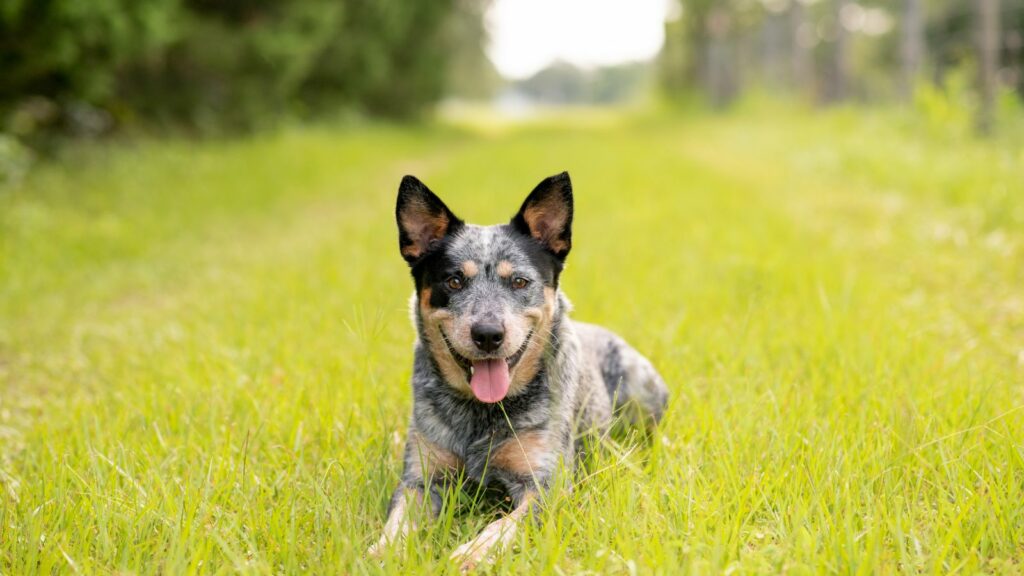The Australian Cattle Dog, known for its agility and high energy levels, is a beloved breed. However, like all breeds, they’re susceptible to certain health issues. This article aims to shed light on these potential health problems, helping owners ensure their furry friends stay as healthy as possible.
Australian Cattle Dog Health Issues
The distinct matters of health involving the Australian Cattle Dog health issues take roots from both genetic and age-related factors. Through responsible breeding and adequate care, such concerns can often be minimized.
Common Genetic Disorders

Genetic disorders constitute significant Australian Cattle Dogs health issues. Owing to breed-specific traits, these dogs may experience certain genetic disorders. Instances include hip dysplasia, a degenerative condition revealing malalignment of the hip joint, number one in the list of breed-prone genetic troubles.
Additionally, cases of deafness and portosystemic shunt, liver condition redirecting blood flow away from the liver, are not unknown for this breed, enhancing the seriousness of subjecting dogs to genetic testing for any potential disorders.
Age-Related Health Problems
As Australian Cattle Dogs advance in age, they become susceptible to certain health issues. Primary amongst those are age-related arthritis and dental diseases. Arthritis tends to develop in older dogs, but its severity can be mitigated with proper care and treatments. Similarly, dental hygiene becomes increasingly vital as dogs age, keeping potential dental diseases at bay.
Timely veterinary checkups and balanced nutrition assist in maintaining overall good health, thereby enabling these companions to live out their golden years in comfort and happiness.
Preventative Measures for Optimal Health
Importance of Regular Veterinary Visits

Prioritizing the routine of frequent veterinary consultations equates with the safeguarding of your Australian Cattle Dog’s health. Veterinary appointments encompass comprehensive health examinations, the provision of critical vaccinations, and timely interventions if health irregularities surface. Given the breed’s susceptibility to certain genetic disorders, veterinarians often recommend specific tests. For example, screenings for hip dysplasia comprise a necessary diagnostic measure.
Diet and Nutrition Tips
Appropriate dietary management guarantees a crucial facet of Australian Cattle Dog wellness. Quality pet food, enriched with vital nutrients and free from artificial fillers, quantifies a step in the right direction. Protein, as a primary ingredient, fuels the dog’s high-energy needs. Simultaneously, fruits, vegetables, and whole grains contribute to a balanced diet by supplying essential vitamins and fibers.
Daily caloric intake warrants calculation, supplemented by regular monitoring of the dog’s weight, to deter obesity—a condition that exacerbates health complications. By integrating ideal feeding practices, offering fresh water continuously, and avoiding human foods potentially hazardous to dogs, owners ensure their Australian Cattle Dogs benefit from optimal dietary health.
Specific Health Concerns in Australian Cattle Dogs
Hip Dysplasia
Hip dysplasia ranks among the primary australian cattle dog health issues. It’s a genetic condition characterized by the improper development of the hip joint, resulting in painful arthritis or even lameness in severe instances. Screening parent dogs for genetic markers of hip dysplasia, before being used for breeding, helps to reduce the likelihood of this genetic ailment being passed to the offspring.
According to the Orthopedic Foundation for Animals, through a survey of more than 15,000 Australian Cattle Dogs, around 10.78% of them were known to have dysplasia.
Deafness

Deafness constitutes a significant concern in Australian Cattle Dogs, primarily because it’s an inherited condition in this breed. Both partial or unilateral (one ear) and complete or bilateral (both ears) deafness occur, impacting the quality of life for affected dogs significantly.
Conducted studies indicate that approximately 10.9% of Australian Cattle Dogs suffer some form of deafness, with 7.6% affected unilaterally and 3.3% bilaterally, based on data compiled by the Australian Shepherd Health & Genetics Institute. The statistics highlight the sheer gravity of the problem and indicate the necessity for responsible ethical breeders to conduct compulsory BAER (brainstem auditory evoked response) testing.
Proactive Health Care for Australian Cattle Dogs
Australian Cattle Dogs are prone to certain health issues, but with proactive care, they can lead healthy lives. Responsible breeding and regular testing can help prevent conditions like hip dysplasia and deafness. It’s crucial that owners stay vigilant about their dog’s health, scheduling regular vet visits and maintaining a balanced diet.

